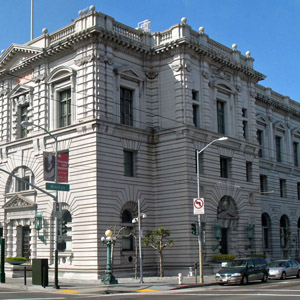 In a per curiam decision, the United States Court of Appeals for the Ninth Circuit issued the decision in Washington v. Trump last week, denying the Government’s emergency motion for stay pending appeal. The decision came only two days after the case was argued, an unconventionally short turnaround, but one that most legal commentators expected in this particular instance.
In a per curiam decision, the United States Court of Appeals for the Ninth Circuit issued the decision in Washington v. Trump last week, denying the Government’s emergency motion for stay pending appeal. The decision came only two days after the case was argued, an unconventionally short turnaround, but one that most legal commentators expected in this particular instance.
What differentiated this particular appeal from those that the Ninth Circuit Judges review on a regular basis—aside from its prophetic name—is that both sides’ argued the Court’s lack of authority to hear the case. The states argued that the appeal is premature and thus not reviewable. The Court gave this one to the Government acknowledging that the temporary restraining orders are generally not immediately reviewable in absence of the final hearing and ruling on the injunction, but noted that the appeal is appropriate here even in light of the limited evidence.
The Government argued that the executive’s authority to suspend the admission of a particular class of aliens is not reviewable by the judicial branch. The court rejected this unreasonably broad and unsupported argument for which even the Government could not provide any support in the law. The Government also argued, as it did before the trial court, that the trial court lacked subject matter jurisdiction because the states lacked standing to sue. Without much legal support, the court noted that the states can challenge the order pursuant to the Establishment Clause of the First Amendment.
Both side’s jurisdictional arguments failed.
In a particularly interesting and unprecedented move, in analyzing the probability that the Government would succeed on its appeal, a necessary consideration in determining whether a stay is warranted, the Court considered the statements that President Trump made before becoming the president. While the President has the general authority to limit the visa-based entries from certain countries, his decision to do so cannot be based on, among other things, religious bias. In determining whether such bias led to the Executive Order 13769, popularly known as the “Muslim Ban,” the court then considered Mr. Trump’s campaign promises.
The court concluded that the Government was not likely to show that the executive order is not in violation of the due process clause, but reserved the full consideration of the claims until the appeal is fully briefed.
The President’s reaction to the decision came in the form of a tweet, “SEE YOU IN COURT . . . .,” indicating that the Government, which just argued the issues in two courts, will seek further review of the decision either through an en banc hearing application or through a petition to the Supreme Court. Neither path, however, will necessary result in a quick resolution: The original case pending in the Western District of Washington may continue, as well as any of the at least five other suits filed against the executive order in recent days.
